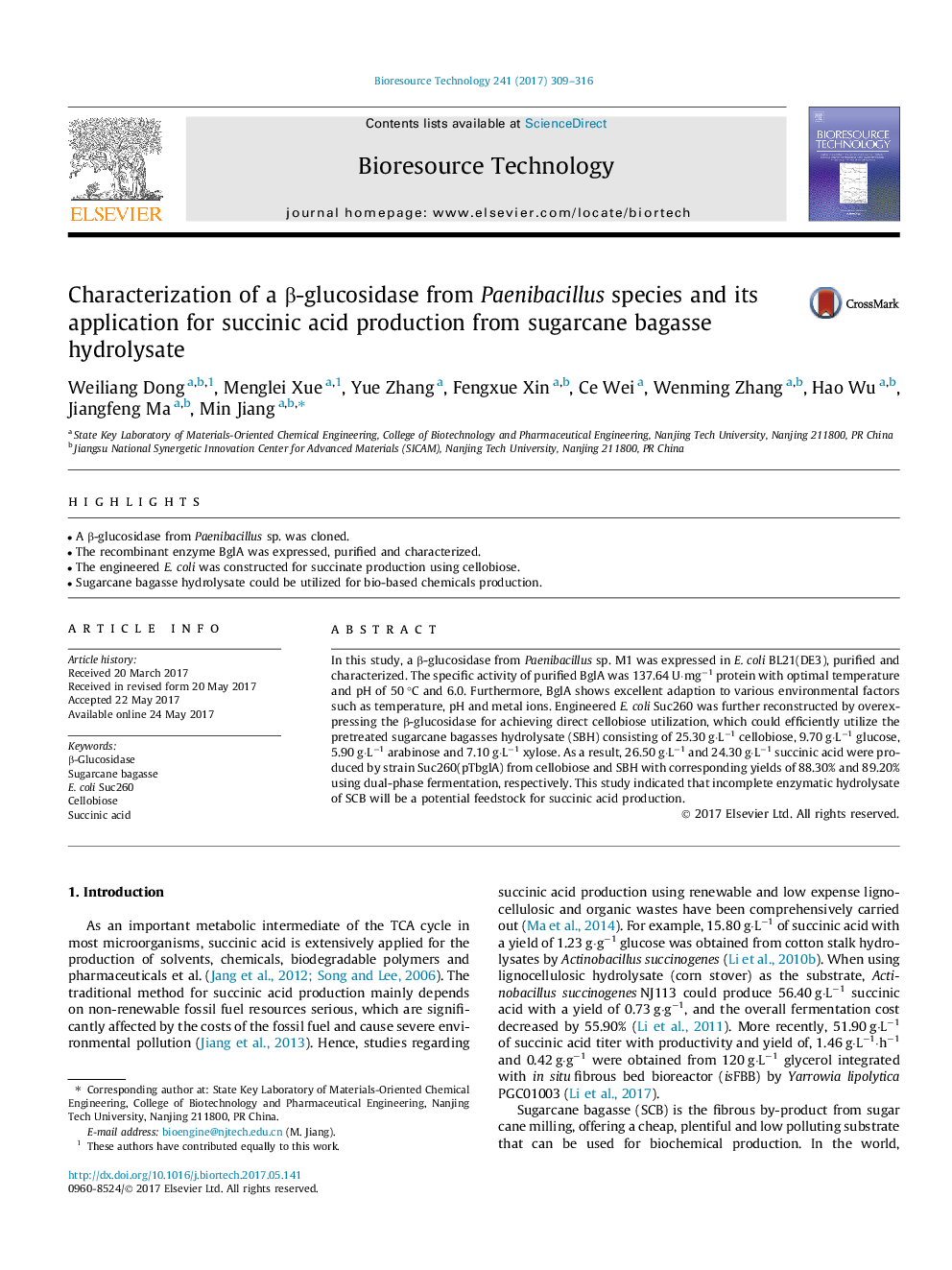| Article ID | Journal | Published Year | Pages | File Type |
|---|---|---|---|---|
| 4997094 | Bioresource Technology | 2017 | 8 Pages |
â¢A β-glucosidase from Paenibacillus sp. was cloned.â¢The recombinant enzyme BglA was expressed, purified and characterized.â¢The engineered E. coli was constructed for succinate production using cellobiose.â¢Sugarcane bagasse hydrolysate could be utilized for bio-based chemicals production.
In this study, a β-glucosidase from Paenibacillus sp. M1 was expressed in E. coli BL21(DE3), purified and characterized. The specific activity of purified BglA was 137.64 U·mgâ1 protein with optimal temperature and pH of 50 °C and 6.0. Furthermore, BglA shows excellent adaption to various environmental factors such as temperature, pH and metal ions. Engineered E. coli Suc260 was further reconstructed by overexpressing the β-glucosidase for achieving direct cellobiose utilization, which could efficiently utilize the pretreated sugarcane bagasses hydrolysate (SBH) consisting of 25.30 g·Lâ1 cellobiose, 9.70 g·Lâ1 glucose, 5.90 g·Lâ1 arabinose and 7.10 g·Lâ1 xylose. As a result, 26.50 g·Lâ1 and 24.30 g·Lâ1 succinic acid were produced by strain Suc260(pTbglA) from cellobiose and SBH with corresponding yields of 88.30% and 89.20% using dual-phase fermentation, respectively. This study indicated that incomplete enzymatic hydrolysate of SCB will be a potential feedstock for succinic acid production.
